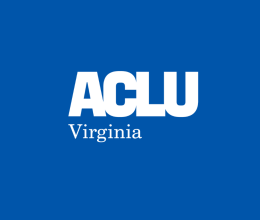
The Virginia Supreme Court has struck down a policy of the Richmond Redevelopment and Housing Authority (RRHA) that gave the agency virtually unlimited discretion to remove non-residents from sidewalks and streets in its apartment complexes. Noting that the policy was overly broad and, as such, could be used to abridge free speech rights, the state's high court reversed the conviction of Kevin Lamont Hicks, who was charged with trespassing while on a sidewalk in the Whitcomb Court project.
The court's decision brings into question a City of Richmond strategy to fight crime in certain areas by converting public streets and sidewalks into private or restricted areas. In this instance, the City deeded to RRHA the streets and sidewalks that run through its projects. RRHA then enacted a policy giving police the power to ban from those streets and sidewalks non-residents who were unable to "demonstrate a legitimate business or social purpose for being on the premises." Anyone who returned after being banned, as Mr. Hicks did, could be arrested for trespassing.
The Constitution guarantees citizens the right to move about freely on public sidewalks and streets. Normally, police cannot interfere with that right unless they believe a citizen is breaking they law.
"The City of Richmond has a legitimate interest in fighting crime in the housing projects," said ACLU of Virginia executive director Kent Willis. "But taking streets and sidewalks away from the public as a means to expanding police powers is constitutional subterfuge. Fortunately, the court recognized what Richmond was doing and put a stop to it."
"We were concerned that the City's scheme, if allowed to continue, might lead to the privatizing of parks and other spaces normally open to the public for demonstrations or other First Amendment activities," added Willis. "Can you imagine the government selling a public park to a private company in order to control who uses the space. Once privatized, anyone who entered the park without permission could be arrested for trespassing. That is essentially what the City of Richmond was trying to do."
The case is Commonwealth of Virginia v. Kevin Lamont Hicks. The decision can be found at http://court.state.va.us (click "Opinons"). Richmond attorney Steve Benjamin represented Mr. Hicks. The ACLU of Virginia filed an amicus brief in support of Hicks' case.
Contacts: Kent Willis, Executive Director, ACLU of Virginia, 804-644-8022 Rebecca Glenberg, Legal Director, ACLU of Virginia, 804-644-8022


